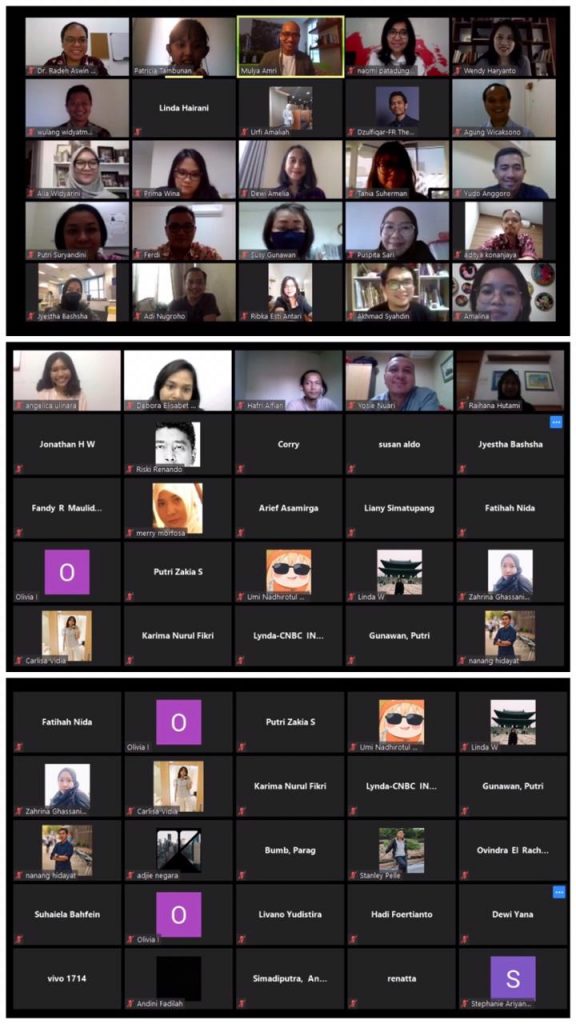Jakarta Property Institute (JPI) Executive Director Wendy Haryanto said a number of adaptations will be made by property businesses as a result of the spread of Covid-19. “The property sector really needs a quick countermeasure,” Wendy said in the JPI-School of Business and Management ITB collaboration webinar How Will We Shop and Work? on Friday, May 15, 2020.
In the short term, Wendy explained, the filing of debt restructuring and interest on loans to banks will be done by businesses. From the government, they will file a tax break. This step is taken to maintain business sustainability.
On the operational side, Wendy said a form of adaptation in the form of implementing more flexible building operating hours is also needed. The goal is so that not too many people gather in a limited time together.
In the long run, according to Wendy, there will be an increase in the need for automation systems to reduce physical touch and digital communication in the company. Because, people are used to working during a pandemic. “The next effect is probably the reduced demand for office space,” he said.
From the retail side, said Wendy, an additional need for logistics warehouse expansion will occur compared to the additional number of stores. Therefore, visits to the store will still be limited to at least the next three months. In addition, the increase in warehouse needs is directly proportional to the increase in online shopping.

Assistant Professor at the School of Business and Management of the Bandung Institute of Technology, Raden Aswin Rahadi, said adaptation is absolute for the property business. Because, a pandemic or crisis has always been an inevitable part of human life. The Spanish Flu Pandemic, SARS, and Ebola were already examples. “This will be an important integral part of the business cycle,” he said.
Specifically Covid-19, said Aswin, the need for the business sector to adapt is increasingly high. He explained, the Covid-19 pandemic was classified as the “Black Swan” phenomenon which was “Unknown Unknowns” because there was no detailed explanation of the conditions being faced. The level of uncertainty when the phenomenon occurs is very high and brings critical consequences in the future. “In this case we will face a” new normal “condition after the PSBB period,” Aswin said.
PT Panasonic Homes Gobel Indonesia Director Wulang Widyatmoko said the company adopted a personal and digital marketing approach as a form of adaptation to the pandemic. Creative content such as Instagram Live and 3D Virtual Tour are created in preparation for the conditions of The New Normal. “So that we can still penetrate into the community who mostly work from home,” he said.
In addition, said Wulang, another challenge was the SAVASA project located in Deltamas, Cikarang, West Java. The project, which will begin the handover of its first unit, makes the property collaboration company between Panasonic Homes in Japan and Gobel International communicate more intensively across Jakarta and Japan.
“Our challenge is for the company to run well and still follow government regulations,” said Wulang.
Head of Property and Asset Management Jones Lang LaSalle Naomi Patadungan said the lifestyle of The New Normal will be applied in high rise buildings. The use of masks and body temperature checks at health posts will be standard. Not only that, physical distance restrictions will also still apply when using elevators, toilets, building queues, and seating arrangements in the dining area. The number of people in meeting rooms and large meeting rooms will also be limited. “Tenants are expected to be accustomed to meeting and training with online methods and limiting accepting external visitors for a while,” he said.
Naomi said changes in standards and lifestyle also applied when the shopping center resumed operations. The visit to the shopping center later only to fulfill the purchase of goods needed. The window shopping activity of visitors will decrease. Visitors who come to the shopping center will be more limited at the age of 15-45 years to maintain health and cleanliness, and maintain endurance.
Another procedure, Naomi explained, applies to display products. The store will limit buyers to touch the product except by using disposable gloves. Parking card collection is also expected to use an automated system. “The Shopping Center will temporarily no longer be a meeting point and gathering place, until conditions return to normal,” he said.
The use of shared facilities in the shopping center will also be limited by the building manager. That is why, said Naomi, queues in the toilet and lobby elevator will likely occur. The worship area will still be deactivated until there is a change in government policy regarding people gathering.




